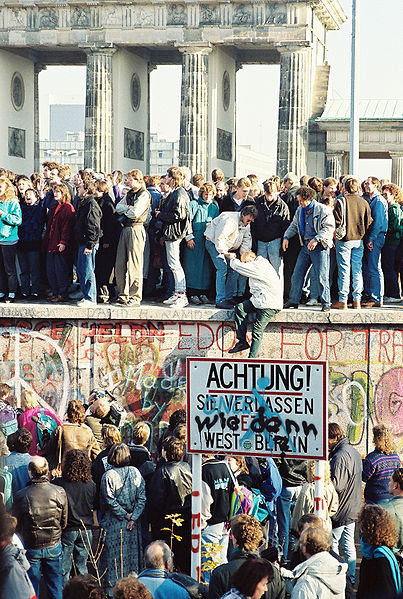Get a little closer…the German way. It’s German Unity Day.

Germany has a national holiday, too, but unlike those other countries, they celebrate unification, not separation. Tag der Deutschen Einheit, literally “German Unity Day,” falls on October 3rd and observes the day in 1990 that West Germany and East Germany combined back into a single Germany after more than three decades of separation.
Prior to the establishment of the holiday, Germany struggled to maintain a consistent National Day due to its troubled 20th century history (not to mention the fact that West Germany was democratic, and East Germany was under Communist control). Before World War II, Germany observed Constitution Day on August 11th. During the period of Nazi rule in the 1930s and ’40s, Germany celebrated Der Erste Mai (“The First of May”), known as International Workers’ Day in many other countries. While that’s a version of “Labor Day” around the world, in Germany the government organized celebrations explicitly to commemorate Hitler’s rise to power. (Ironically, workers and labor unions were not allowed to celebrate workers or labor during that time.) When the country split into two Germanys after the war, it became a celebration of Communism in East Germany and a minor day-off-work holiday in West Germany. Der Erste Mai is still a celebration of labor in modern Germany, but the true “national holiday” is now Tag der Deutschen Einheit.
Yet Germans are still bickering over it. Some officials think that the Tag der Deutschen Einheit holiday should be moved to November 9th in order to honor the day in 1989 that the Berlin Wall came down. Others wanted it switched to the first Sunday in October. (The latter plan was nixed because the public preferred to have it fall on a weekday so they could get a day off from work.)
In addition to giving them a reason to celebrate, Tag der Deutschen Einheit adds an extra day of drinking and merriment to many Oktoberfest celebrations. Along with celebrations around the country and the Ländermeile, a big street fest that’s held in a different state capitol every year, Berlin hosts a four-day festival near the Brandenburg Gate.
Watch this YouTube video to learn more about the holiday:
Or watch this one to get into the reunification spirit.







